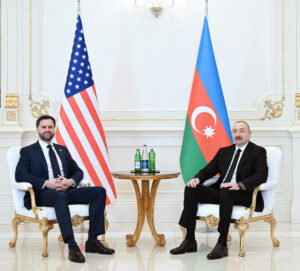Arab Economies and the Strategy to Phase out Fossil Fuel

Phasing out fossil fuel is a very complex challenge. It not only affect economies but also require multifaceted approach and shift in social behavior. It is an undeniable fact that fossil fuels are the main contributor to GHGs (Green House Gases) emission, which are responsible for climate change. Several debates and agreements have been signed to achieve net zero emission through energy transition pathways. COP 28 has faced a huge rift to reach an agreement at the United Nations climate summit in Dubai, where countries call for a phase out of fossil fuels in order to fight global warming.
Arab countries economies rely on the exports of fossil fuel. States like Saudia, Iraq and GCC countries are the home to some of the largest global reserves. These states are directly impacted by energy transition. Initially, these states resisted the energy transition and act as a climate obstructionists. However, this perception of climate obstructionists about the Arab world has been changed now. Arab states have been joining pro-climate endeavors. UAE pledged to reach net-zero emissions by 2050. Net-zero pledges by Saudi Arabia and Bahrain by 2060 followed. In 2022, during COP27, Kuwait and Oman followed suit with pledges by 2050. These states, especially Saudi Arabia and the UAE, have positioned themselves as leaders in providing clean energy globally with both expertise in hydrocarbons and a potential advantage in renewables and energy transitions. It is a huge ask for the fossil fuel dependent economies.
Arab Economies reliance on Fossil Fuel
Arab countries exports are heavily rely on petroleum products. Saudi Arabia is remained the world’s largest oil exporter in 2023. Saudi Arabia Total Exports recorded 26.3 USD bn in Dec 2023. Crude oil serves as the lifeblood of Kuwait’s economy and is the country’s primary export. With extensive oil reserves and a well-established extraction and refining infrastructure, Kuwait dominates the global oil market. Kuwait’s hydrocarbons account for over 85 percent of fiscal revenue and 50 percent of GDP. Similarly, Petroleum and natural gas are the cornerstones of Qatar’s economy and account for more than 70% of total government revenue, more than 60% of gross domestic product, and roughly 85% of export earnings. United Arab Emirates’ economy is highly dependent on the exports of oil and natural gas (40 percent of total exports).
Phasing out fossil fuel is really a big challenge
The fundamental challenge that Arab countries will face is pervasiveness of private sector. The pervasiveness of oligopolies limits competition. Sustained rents detract from growth-enhancing innovation and creative destruction, thereby hampering economic efficiency, competitiveness, and growth.
Similarly, the lack of technology available to achieve net zero emissions is also a hard nut to crack. Achieving Net zero emissions without advance technology such as Carbon Capture, utilization and storage (CCUS) will hinder the economic growth of the Arab countries. Phasing out fossil fuels need phasing down technology first than these countries will able to cut the emissions as pledged in international agreements.
Countries will work for environment and think in a sustainable manner only when their economic motives will not be compromised. Limited renewable energy infrastructure is a big hurdle in achieving domestic decarbonization and green hydrogen export plans. This limited infrastructure is due to lack of economic motives of the Arab countries. Although there is an ideal scenario for most of the Gulf States having the world’s best solarand wind resources and some of the lowest costs for renewable energy production, yet renewable energy production was significantly lowest in the previous years. Slow development in renewable infrastructure for domestic needs also raises the question about renewable infrastructure required for achieving pro-export projects.
Apart from these challenges, there is also an issue of cohesive policies and regulations for environmental protection. Arab countries have significant policy gaps regarding environmental protection, decarbonization incentives, and CCUS (such as carbon transportation and storage).
Pathway to phase out fossil fuel
Though continuing to export oil will fill the region’s coffers, it could also threaten its very existence due to global rise of 1.5 degrees Celsius. However, economic prosperity is also necessary for existence. Therefore, phase out fossil fuel needs transition that already have started by many of the Arab countries. Energy transition projects emerged under the umbrella of economic diversification, detailed in each GCC country’s grandiose, ambitious, multiyear economic transformation plans known as “Visions.”
Environment is not only the economic concern for Arab countries but the demand of oil has substantially reduced globally. International Monetary Fund warning that reduced demand for oil might eat away the region’s coffers in just 15 years. Therefore, transition is pragmatic and necessary in such scenario. Saudia has already initiated the green development projects. Saudi Arabia, the United Arab Emirates and Qatar are building some of the world’s largest renewable power plants as they wean themselves off fossil fuels.
Exporting solar power envisaged as a huge economic opportunity. In the Gulf countries, each square meter of land fitted with solar could yield the same amount of energy each year as 1.1 barrels of oil. UAE and many of the other countries are now adopting the economic model of Dubai. Dubai does not have an oil-based economy. The little oil wealth it did enjoy between the 1960s and the 1990s was used to enhance other sectors of its economy by building physical infrastructure. Tourism is now one of the most important source of revenue for Dubai.
The pledge in COP-28 to phase out fossil fuels has increased the importance of COP-29 that will held in Baku, Azerbaijan this year. The ledge to phase out fossil fuel completely is a very promising step that need assistance, financial and technological advancement without compromising the economic motives of the Arab world. It will not only the matter of Arab world but the major importers of hydrocarbons also require transition at large scale. Achieving the sustainable environment without compromising the future needs is the need of hour to counter the menace of climate change. Otherwise, Mother Nature will become violent and become an existential threat for the world.


